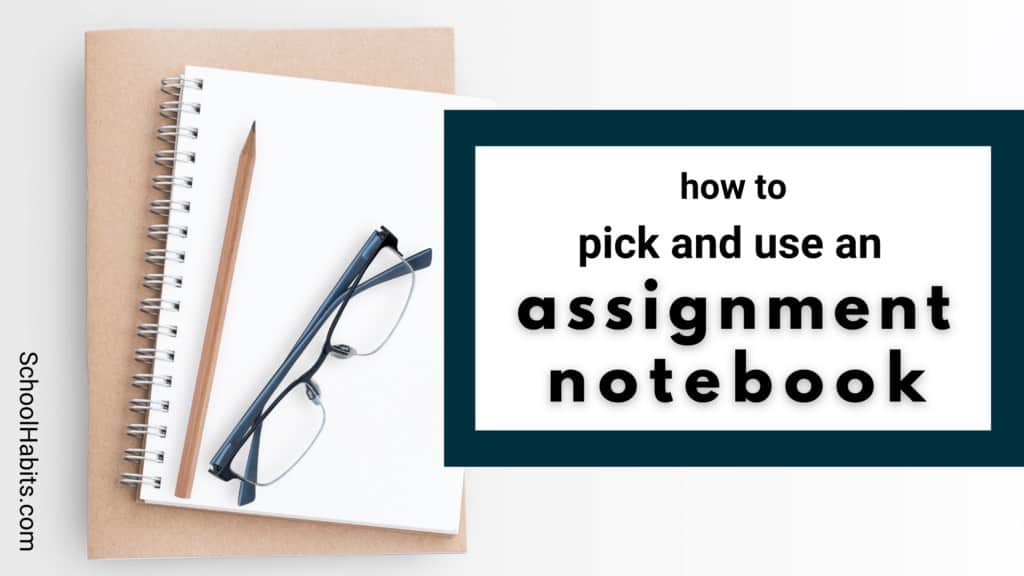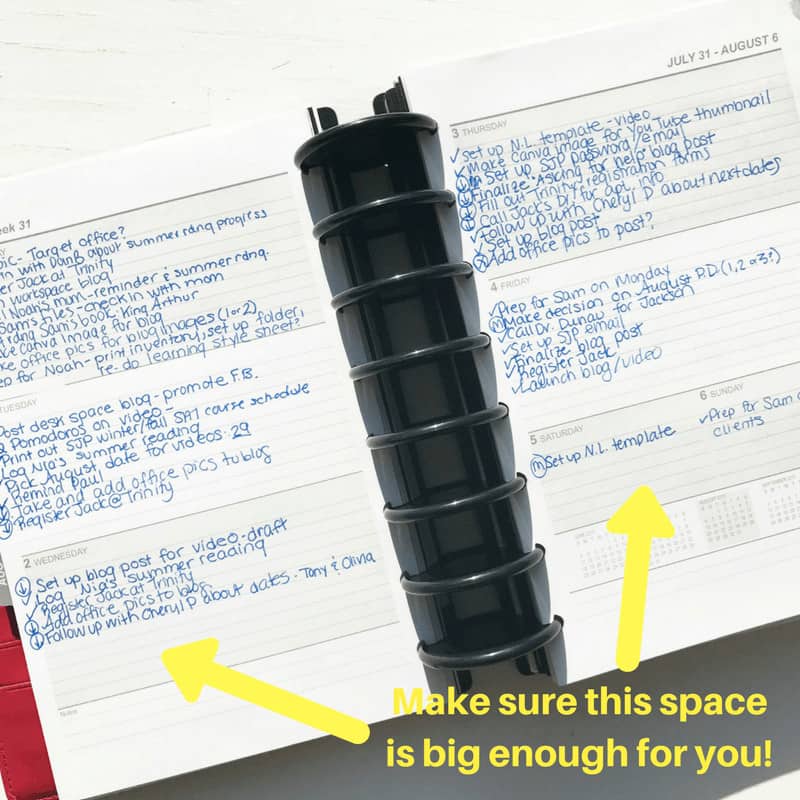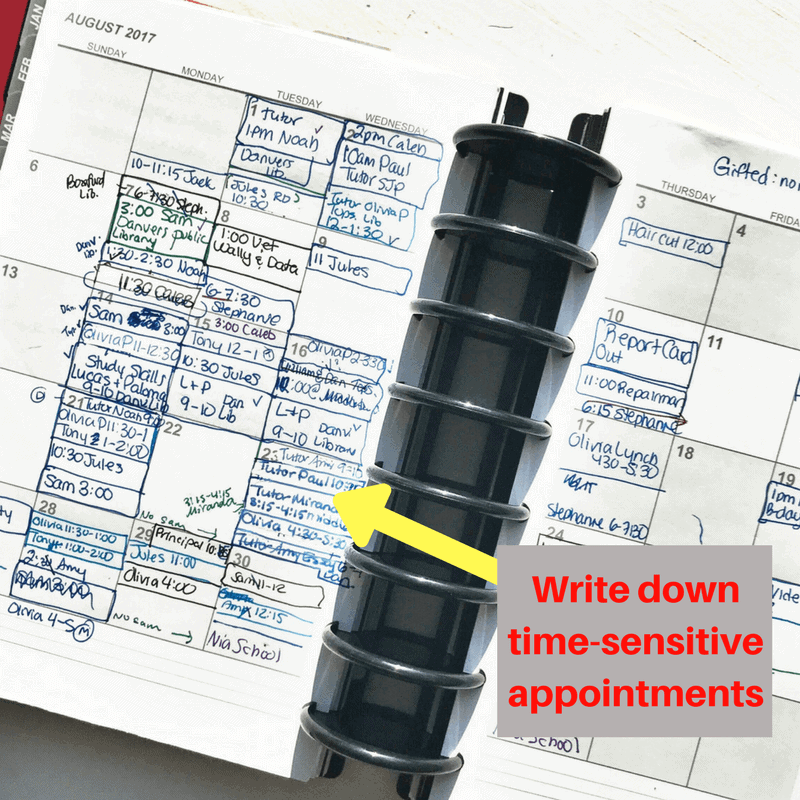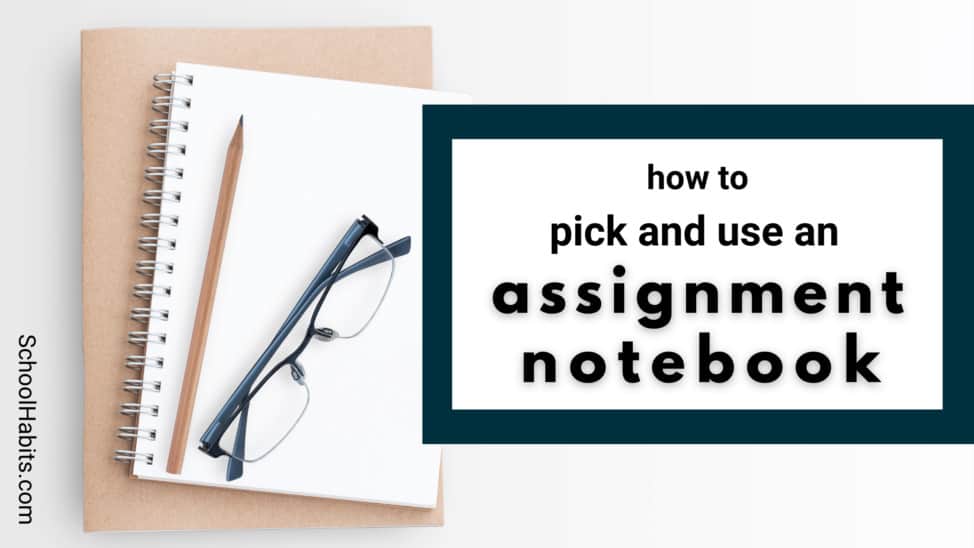
You’re here because you want to know how to pick and use an assignment notebook. But I’m going to start by giving you the best assignment notebook tip ever: write it down.
Write down assignments. Write down due dates. Write down appointments. Write it all down. You could have the BEST assignment notebook in the universe, and it will still be horrible if you don’t use it.
Why you need an assignment notebook
Our brains were made for way cooler things than storing boring information like what pages we’re supposed to read for homework and what day we are going to the dentist.
Our brains were made for thinking. And creating. And day dreaming, or whatever.
So when we try to use our brains to store “shallow” information like homework assignments, guess what we end up doing? Yup, having less brain energy to think and create.
How does that affect us in school? We will have difficulty paying attention, learning, remembering, studying, reading, etc. — all because we are using up our background brain energy (our mental bandwidth!) trying to subconsciously remember when the heck our project is due.
What’s the solution?
Write it all down. Everything. Every time.
Here’s where having an assignment notebook or student agenda comes into play. You need one. And you need one that works for you.
Just as we all think and learn differently, we are all going to have unique preferences for what this system looks like and how we use it. But no matter your unique tastes and preferences, the whole point of using an assignment notebook or agenda is to have a place to deposit the information that sucks up our brain power. We all need a place to write down what we can’t forget but don’t need to store.
Why you think you don’t need an assignment notebook
The biggest resistance I hear from students about keeping an assignment notebook is this: “I can remember everything myself.”
Ugh. Please. Just because we CAN do something doesn’t mean we SHOULD. And just because we CAN do something, doesn’t mean it’s GOOD for us.
Even if you CAN remember all your assignments and due dates and tasks and appointments, you must also remember this: trying to store this information in our heads uses up brain energy that we should be using for other things!
How to pick and use an assignment notebook
I recommend that every student use an assignment notebook that has at least two basic components. After that, the rest is up to you. All assignment notebooks should have at least:
- a monthly calendar view
- a daily calendar view with space
The monthly calendar view
This is an essential component to any proper task management / assignment notebook system. A calendar view allows us to see, at a glance, what we have going on for the month. This is where we write down and keep track of anything that is time-sensitive, like appointments, due dates, work hours, practices, games, etc. Basically anything that requires us to BE at a certain place at a certain time goes in this section. We can also use this monthly calendar to mark important dates such as birthdays.
A quick glance at your monthly calendar should essentially alert you to what you’ve got going on in the next week, as well as any due dates that are lurking around the corner.

The daily calendar view
This is the second essential component to any good assignment notebook or student agenda. In the daily view, we write down what we have to do on that particular day. This information isn’t usually time sensitive, other than it needs to get done that day. (Unlike a doctor’s appointment, at 3:00, which you would put on your monthly view.) Here, we write down homework assignments (all of them! Every time! Even if it’s small!), tasks and to-dos. This stuff can be school related, life-related, job related, or personal. It’s important that this section have enough space for you to feel comfortable writing in. If it’s too small, you will probably end up leaving some items off, and that’s very much not the point!

Optional assignment notebook components
Although this part isn’t totally necessary for everyone, I think that most people would benefit from a simple list-like section in the front of their notebook to write down things that pop up and need to be addressed, but that aren’t necessarily tasks or appointments.
This is where you could jot down ideas you have, random things you want to remember for a later time, and projects you want to get to at some point. This could also be where you do your brain dumps.
If you came to this post looking for assignment notebook recommendations, I’m hesitant to offer any because anything I link here will eventually become outdated (you should always have a dated assignment notebook). But if you need a reference point, this is a good one.
Assignment notebook extras
Apart from having an assignment notebook or calendar with a monthly and daily view, you can play with any other components you want. I have a ton of different lives (mom, teacher at one school, teacher at another school, business owner, graduate student, etc. times infinity!!) so I have a lot of other sections in my own personal task management system. But that’s all the fun stuff that you get to play around with and figure out over time.
My last assignment notebook tip is based on the same principle for everything I teach: keep it simple. Start with the basics and only add sections if you need to.
Once you know how to pick and use an assignment notebook, here are my best tips for how to keep track of homework. Seriously helpful.

